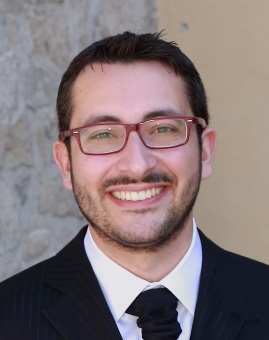课程详情

 大师高级课程系列之
大师高级课程系列之
物联网中的智能感知接口电子
Interface electronics for smart sensing in IoT
2017年10月30日-10月31日 | 上海
为什么参加
如今传感器无处不在,每一天我们都在与家里、公司、汽车、电话甚至身体上的数百种不同的传感器进行交互。它们用于感测运动、位置、环境条件(温度、湿度)以及生物医学参数(心率、血压)。因此,传感器是物联网(IOT)的本质驱动力:它们构成物理世界和网络之间的第一层,因为它们要收集需要在物联网上层进行分析和路由的物理参数。
为了获取物联网所需的高质量信息,简单的传统传感器是不够的,我们必须诉诸智能传感器 ,这些传感器通常将其接口电子器件封装在一起。来自传感器的微弱信号需要通过接口电路进行放大、调节和转换为数字域,从而可以对数字信号进行进一步的处理和传输。除了直接的信号处理以外,智能传感器中的电子设备可以提升传感器的性能,例如在线性和带宽方面,同时还允许更简单和更好的修剪和校准。随之而来的简化测试以及在相同硅片或封装中集成传感器和电子设备的可能性可以降低生产成本。降低成本、提高性能以及易于集成在数字IOT节点中等几个关键因素可轻松解释智能传感器日益增产的产业兴趣。
本课程将重点介绍智能传感器接口电子设计。我们将处理典型智能传感器中接口电子设计中我们所面临的挑战,并从系统级和电路级来聚焦特定的电路模块(如放大器、模数转换器、参考电路),从而考察解决方案和替代方案。讲座将涵盖现场初学者所需的基础介绍材料,以及有经验的设计师感兴趣的更多高级课程。除了理论背景外,课程还将从学术界和工业界提出几个相关案例研究。
Sensors are everywhere. Each day, we interact with hundreds of different sensors placed in homes, workplaces, cars, phones and even on our bodies. They are used to sense movement, position, environmental conditions, such as temperature and humidity, and biomedical parameters, such as heart rate and blood pressure. As such, sensors are an essential enabler for the Internet of Things (IoT): they constitute the first layer between the physical world and the network since they collect the physical parameters to be analyzed and routed in the upper layers of the IoT.
To generate the high-quality information required for IoT, simple traditional sensors are not sufficient and we must resort to smart sensors, which combine the sensing transducers and their interface electronics, usually in the same package. The weak signal from the transducer needs to be amplified, conditioned and converted to the digital domain by the interface electronics, so that a robust digital signal can be further processed and transmitted digitally. In addition to straightforward signal processing, the electronics in a smart sensor can augment the sensor performance, for example in terms of linearity and bandwidth, while also allowing simpler and better trimming and calibration. The ensuing simplified testing, together with the possibility to integrate sensors and electronics in the same die and/or package, results in lower production costs. Lower costs, increased performance and the ease of integration in a digital IoT node easily explain the ever-increasing industrial interest in smart sensors.
This course will focus on the design of the interface electronics for smart sensors. We will deal with the challenges faced by designers of interface electronics in typical smart sensors and review solutions and alternatives, both looking at the system level and at the circuit level by focusing on specific circuit blocks, such as amplifiers, analog-to-digital converters and reference circuits. The lectures will cover both introductory material for beginners in the field and more advanced topics of interest for experienced designers. In addition to the theoretical background, several relevant case studies will be presented both from academic and industrial examples.
学习目标
完成课程后,参与者将能够:
了解智能传感器系统的基本功能;
识别智能传感器接口中的不准确和噪音的主要来源;
理解并应用设计技术和电路拓扑,以最大限度地减少智能传感器接口的噪声和不准确性;
分析智能传感器接口电子设计中的设计折衷;
了解最新的先进技术,以提高智能传感器接口的性能。
After completing the course, participant will be able to:
Understand the basic functionalities of smart sensor systems;
Identify the main sources of inaccuracy and noise in smart sensor interfaces;
Understand and apply design techniques and circuit topologies to minimize noise and inaccuracy in smart sensor interfaces;
Analyze the design trade-offs in the design of electronic interface for smart sensors;
Understand advanced state-of-the-art techniques to improve performance in smart sensor interfaces.
谁应该参加
对智能传感器设计基础知识感兴趣的电气工程师;
对智能传感器接口电子的基础和高级技术感兴趣的模拟/混合信号设计师和系统工程师;
涉及智能传感器测试和表征的产品、测试、系统和应用工程师;
对智能传感器和接口电子产品感兴趣的研究人员和研究生/本科生;
愿意了解掌握智能传感器的基本原理、局限性和未来技术趋势的技术经理。
Electrical engineers interested in fundamentals of smart sensor design.
Analog/mixed-signal designers and systems engineers interested in basic and advanced techniques for interface electronics for smart sensors.
Product, test, system, and application engineers involved in smart sensor testing and characterization.
Researchers and graduate/undergraduate students interested in smart sensors and/or interface electronics.
Technical managers willing to understand smart sensors fundamentals and to grasp limitations and future technology trends.
主办单位
上海林恩信息咨询有限公司
上海集成电路技术与产业促进中心
课程安排
课程时间:2017年10月30日—10月31日 (2天)
报到注册时间:2017年10月30日, 上午8:30-9:00
课程地点:上海集成电路技术与产业促进中心(上海市浦东新区张东路1388号21幢)
课程费用
课程注册费用4500元/人(含授课费、场地租赁费、资料费、课程期间午餐),学员交通、食宿等费用自理(报名回执表中将提供相关协议酒店信息供选择)。
优惠折扣:在校学生注册费用3500元/人;
4人以上团体报名优惠可协商;
报名方式
请各单位收到通知后,积极选派人员参加。报名截止日期为2017年8月11日,请在此日期前将报名回执表发送Email至:
邮件:steven.yu@lynneconsulting.com
报名咨询电话:021-51096090;
或者添加微信:136 7161 3108(手机),暗号:传感器课程。
关于付款:
请于10月27日前将全款汇至以下账户。并备注(传感器课程+单位/学校+姓名)
银行信息:
户 名:上海林恩信息咨询有限公司
开户行:上海银行曹杨支行
帐 号:31658603000624127
支付宝信息:
公司名称:上海林恩信息咨询有限公司
支付宝账号:pay@lynneconsulting.com
课程具体安排
第一天: 10月30日(星期一)
1、Introduction to smart sensors-智能传感器简介:
transducers and interface electronics; measurement and uncertainty: accuracy, precision, stability; trimming and calibration; silicon sensors; smart sensor system design.
传感器和接口电子学;测量和不确定度:准确度、精度、稳定性;修剪和校准;硅传感器;智能传感器系统设计。
2、Amplifiers for smart sensors-智能传感器中的放大器:
requirements for smart sensor applications; offset and flicker noise; dynamic offset-compensation techniques: chopping, auto-zeroing and correlated-double sampling.
智能传感器的应用需求;偏置和闪烁噪声;动态偏置补偿技术:斩波、自动归零和相关双采样。
3、Analog-to-digital converters-模数转换器:
Sampling and quantization; ADC performance metrics; architectures: Nyquist-rate converters and oversampled data converters; figure of merits and efficiency; advanced ADC architectures for smart sensors.
采样和量化;ADC性能指标;架构:奈奎斯特速率转换器和过采样ADC;优点和效率;智能传感器的高级ADC架构。
4、References-基准:
References: references for sensor read-outs and their requirements; references for resistive and capacitive sensors; references in analog-to-digital converters; current and voltage references in CMOS.
传感器读数基准及其要求;电阻和电容传感器基准;ADC基准;CMOS中的电流和电压基准。
第二天: 10月31日(星期二)
5. Advanced self-calibration techniques-高级自校准技术:
Advanced offset-reduction techniques; techniques for gain matching and accuracy; system calibration; dynamic-element matching.
高级偏置补偿技术;增益匹配技术;系统校准;动态元素匹配。
6. Case study – frequency references for IoT-案例研究—IOT的频率基准:
IoT requirements; system optimization; source of inaccuracy; overview of integrated references: RC, LC, thermal-diffusivity-based, MOS-based, MEMS; ultra-low-power references; temperature compensation; supply-voltage compensation; other effects.
物联网需求;系统优化;误差来源;综合基准概述:RC、LC、基于热扩散性、基于MOS、MEMS;超低功耗基准;温度补偿;电源电压补偿;其他影响。
7. Case study – smart temperature sensors-案例研究—智能温度传感器:
Bandgap-based temperature sensors; temperature sensing in advanced CMOS processes: bipolar-based vs. thermal-diffusivity-based temperature sensors; temperature sensors for on-chip thermal management; future perspective: noise-based sensing and cryogenic CMOS sensing.
基于带隙的温度传感器;先进CMOS工艺中的温度传感:基于双极性和基于热扩散性的温度传感器;温度传感器用于片上热管理;未来观点:基于噪声的感测和低温CMOS感知。
8. Case study – resistive sensor read-outs-案例研究—电阻式传感器读数:
introduction to resistive sensors and basic topologies; resistive magnetic sensors for automotive applications; sensor requirements; multi-channel amplifier design for automotive magnetic sensor; multi-channel analog-to-digital converters for automotive magnetic sensors.
介绍电阻式传感器和基本拓扑结构;用于汽车应用的电阻式磁传感器;传感器需求;汽车磁传感器多通道放大器设计;用于汽车磁传感器的多通道模数转换器。
教授简介:
Fabio Sebastiano 教授
IEEE高级会员
2008年ISCAS最佳学生论文奖
恩智浦半导体研究所从事研究工作(2006-2013)
IEEE固态电路会议邀请报告和授课
Delft University of Technology助理教授
 Fabio Sebastiano分别于2003年和2005获得意大利比萨大学学士学位和硕士学位, 2006年获得意大利比萨圣安娜高等院校的硕士学位,2011年获得荷兰代尔夫特理工大学博士学位。
Fabio Sebastiano分别于2003年和2005获得意大利比萨大学学士学位和硕士学位, 2006年获得意大利比萨圣安娜高等院校的硕士学位,2011年获得荷兰代尔夫特理工大学博士学位。
2006年至2013年,他曾在荷兰艾恩德霍芬的恩智浦半导体研究所进行研究工作,致力于全集成CMOS频率基准、纳米CMOS温度传感器和面向磁传感器的接口电子研究。2013年,他加入德尔夫特理工大学,现任助理教授。他的主要研究方向集中于低温电子接口,全集成的频率基准和智能传感器的接口电子。
Sebastiano博士拥有8项专利,共合著1本书和40多篇技术出版物。他获得了2008年ISCAS最佳学生论文奖。Fabio是IEEE的高级会员,并在几个国际会议上,包括排名第一的国际固态电路会议(ISSCC)做了邀请报告和课程。
附件下载:
1、物联网传感器高级课程通知
2、物联网传感器高级课程注册表


